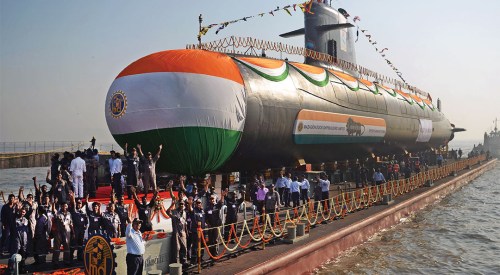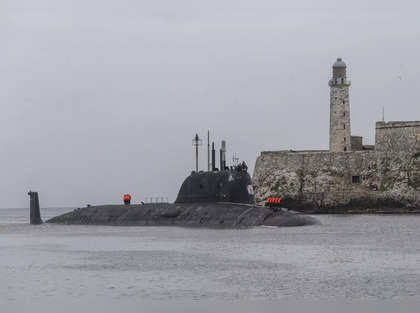India Poised to Dominate Submarine Manufacturing in the Asia-Pacific Region. India is on the verge of becoming a significant player in submarine manufacturing within the Asia-Pacific (APAC) region, according to insights from Oliver Burkhard, CEO of Thyssenkrupp Marine Systems (TKMS).
TKMS, a global leader in conventional submarine technology, has identified India’s strategic position and industrial capabilities as pivotal for meeting the growing demand for submarines in Europe, South America, and South Asia.
TKMS has entered into a strategic partnership with Mazagon Dock Shipbuilders Ltd (MDL), an established Indian shipbuilding company, to jointly bid for the Indian Navy’s Project-75I.

This project involves the construction of six advanced submarines, with an estimated cost exceeding ₹45,000 crore (around $5.4 billion USD). A significant aspect of this project is the emphasis on domestic value addition, which underscores India’s potential to become a central hub for submarine production in the APAC region.
Burkhard elaborates on the partnership’s vision, which is to replicate TKMS’s successful submarine manufacturing model used in South America, establishing India as a central manufacturing base.
This initiative not only aims to meet India’s own defense needs but also positions the country as a potential supplier of submarines to other nations in the region. This move is expected to significantly alter the defense manufacturing landscape in the APAC region.Germany’s Ambassador to India, Philipp Ackermann, has expressed robust support for the ongoing discussions between TKMS and the Indian Navy concerning Project-75I.
He emphasized that Germany regards India as a primary security partner in the region and is committed to enhancing this cooperation. Ackerman highlighted TKMS’s proven track record, particularly its Air-Independent Propulsion (AIP) system, which significantly enhances submarine endurance and operational capabilities, making the firm a strong contender for the project.
Strong International Support and Technological Capabilities
TKMS has a distinguished history in submarine design and manufacturing, having delivered submarines to over 20 countries’ navies. This extensive experience positions the company as a leading candidate for the ambitious Project-75I, and the collaboration with MDL aims to harness this expertise while fostering significant technological and industrial growth within India.
The broader strategic implication of this partnership is profound. Should the TKMS-MDL bid for Project-75I succeed, it could pave the way for India to emerge as a major submarine manufacturing hub. This would not only bolster India’s defense capabilities but also enhance its strategic influence in the APAC region.

Furthermore, the success of this project could attract further international defense collaborations and investments, positioning India as a pivotal player in global submarine technology and manufacturing.
This development comes at a time when Thyssenkrupp is undergoing significant restructuring within its group, shifting its focus towards green technologies, such as hydrogen for steel production.
Burkhard highlighted the substantial investment needed to decarbonize steel manufacturing, with a projected cost of $1 billion to convert one million tonnes of steel capacity to CO2-free production. This strategic pivot underscores Thyssenkrupp’s commitment to sustainability while continuing to leverage its expertise in advanced marine systems.
India’s Growing Submarine Development Initiatives
India’s existing initiatives in submarine development further underscore its potential as a submarine manufacturing hub. Current projects include the construction of nuclear-powered ballistic missile submarines under the Arihant class and the development of advanced conventional submarines under Project-75.
These projects highlight India’s growing capabilities and ambitions in indigenous submarine construction.In summary, the strategic partnership between TKMS and MDL for Project-75I represents a significant opportunity for India to establish itself as a central hub for submarine manufacturing in the APAC region.
The success of this venture could mark a pivotal shift in the global defense manufacturing landscape, positioning India as a major supplier of advanced submarines. This potential transformation underscores the importance of international collaboration and the strategic value of leveraging India’s industrial and technological capabilities in submarine construction.
Also read:
Two terrorists neutralized, security personnel injured in Hadipora encounter



